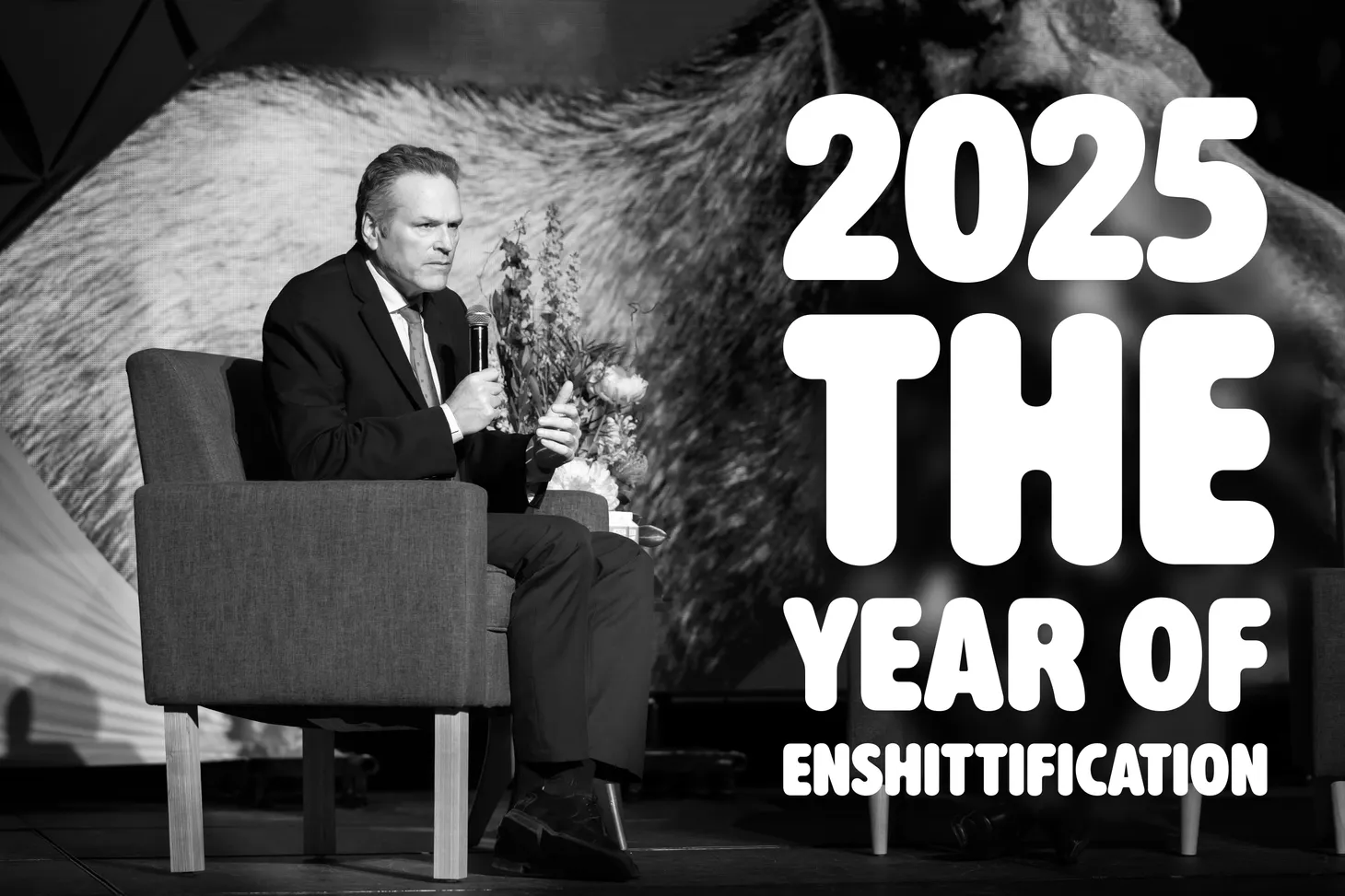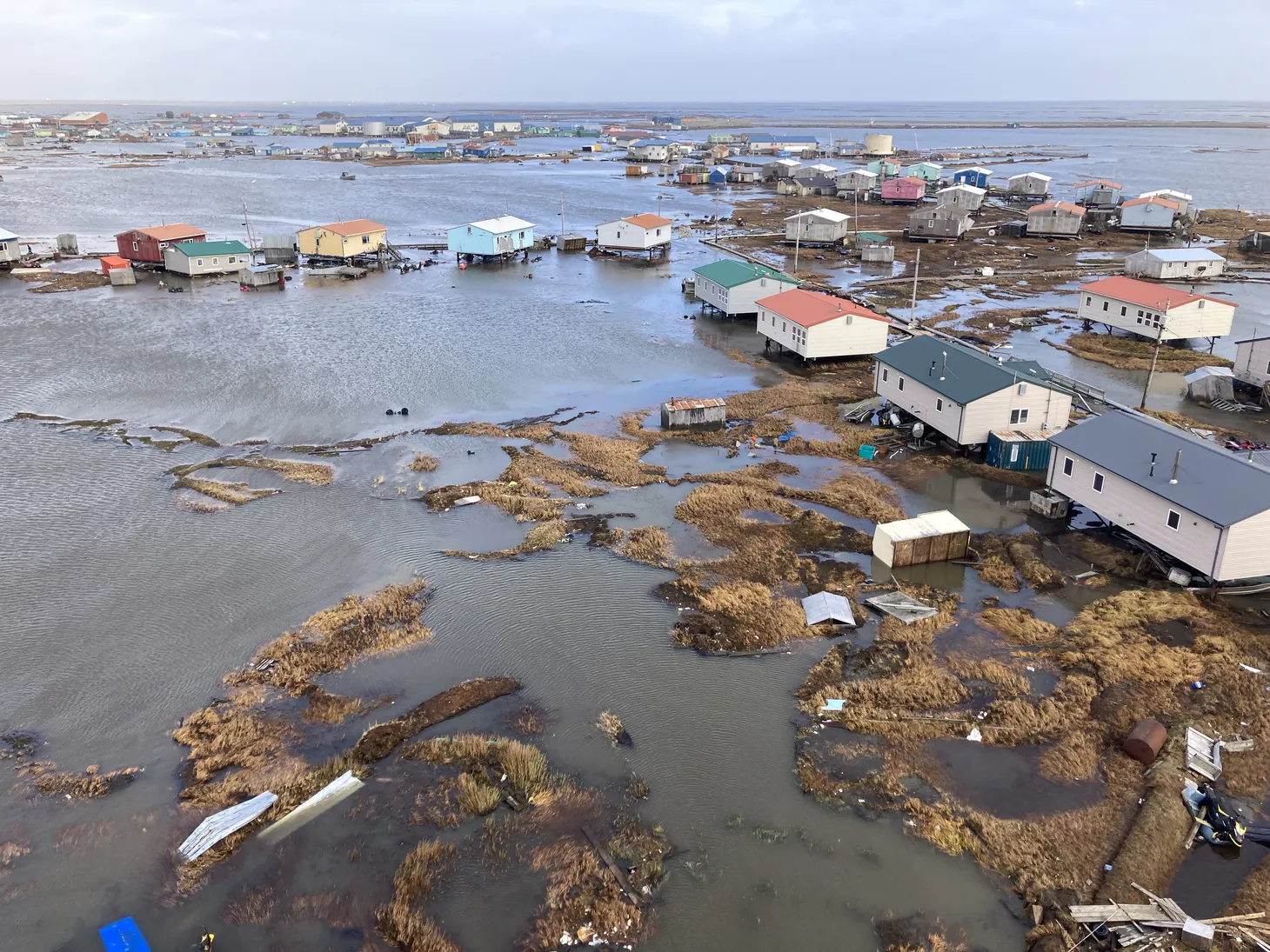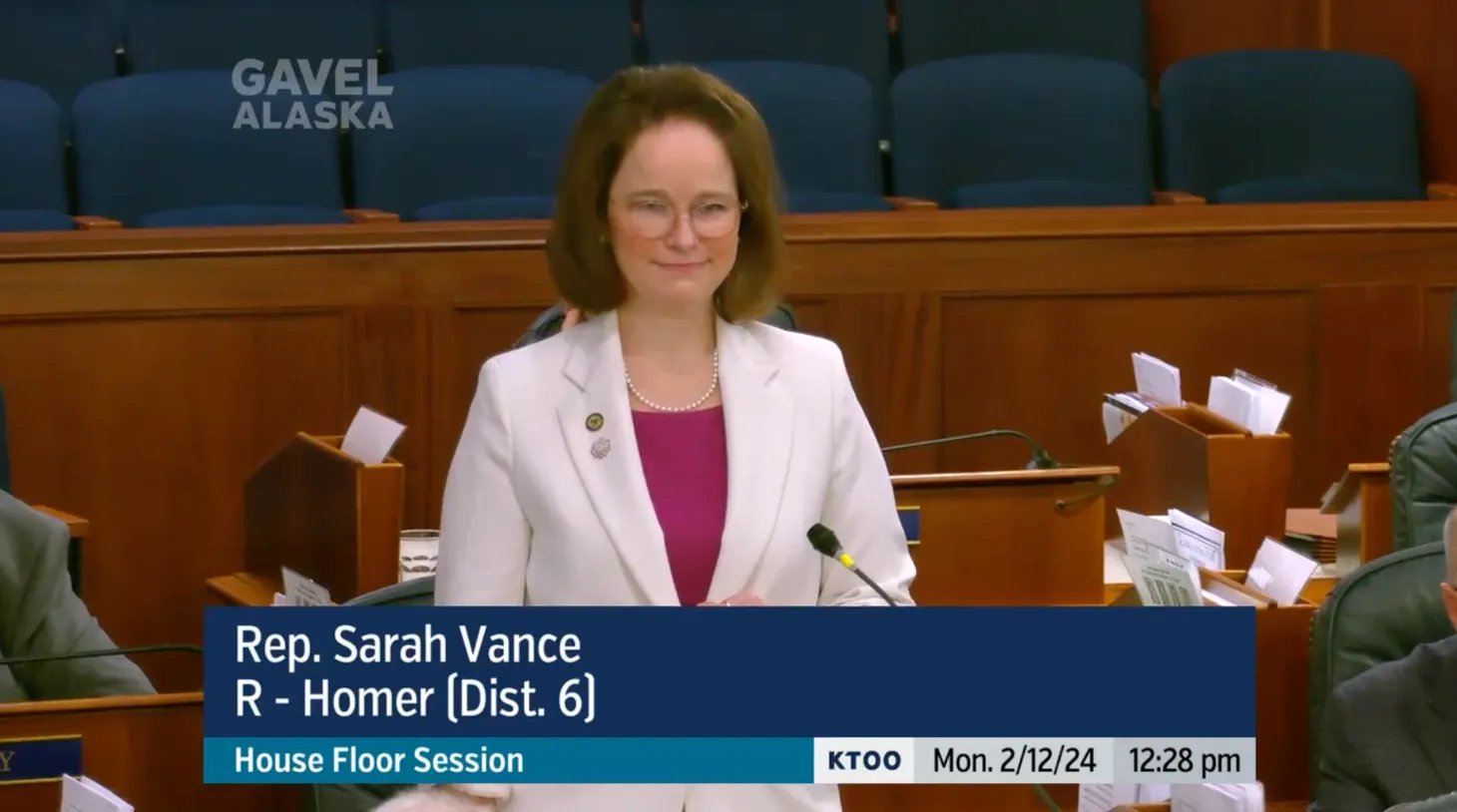Dunleavy says he had a 'moral imperative' to kill school funding bill
Dunleavy, as he reminded everyone several times throughout the hearing, knows best because he was once a teacher.
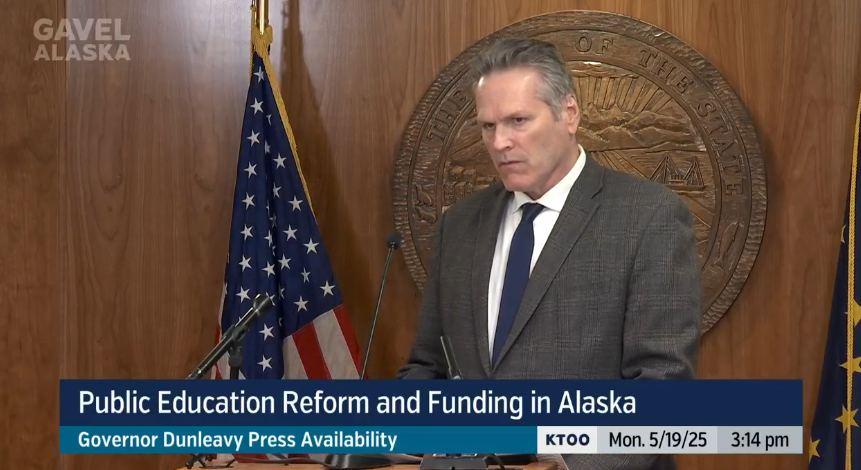
Good evening, Alaska! It's still Day 119.
In this edition: As expected, Gov. Mike Dunleavy delivered his third veto of legislators' attempts to permanently increase funding for the public school system. He's also offered up perhaps the most brazen claim in a long line of reasons he's thrown out in opposition to public school funding: Funding simply doesn't make a difference. Instead, he's continued to hold onto the claim that policies that largely serve the haves at the expense of the have-nots are the best direction forward for Alaska's public education system. His broken-record ramblings, on full display at an afternoon news conference, aren't moving the needle, setting up legislators to attempt an override tomorrow morning.
Current mood: 🙄
Dunleavy says he had a 'moral imperative' to kill school funding bill, setting up override attempt
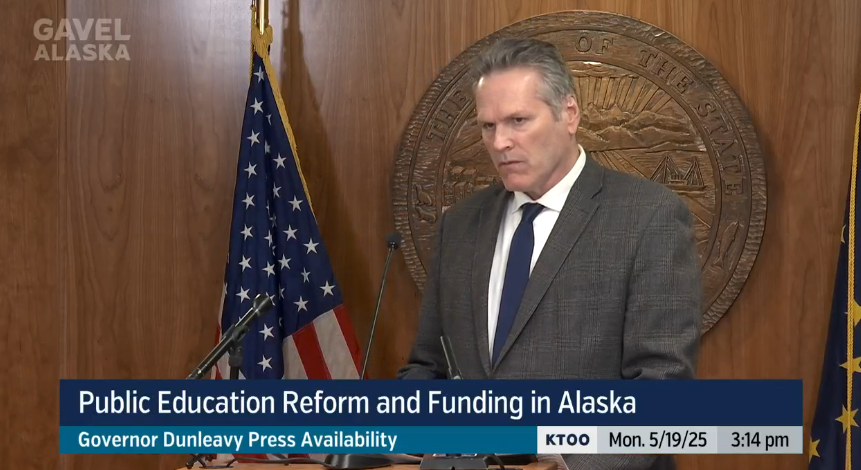
Well.
Here we go again.
Today, Gov. Mike Dunleavy delivered his anticipated veto of legislators' latest attempt to permanently increase funding for the state's public school system. The bipartisan compromise legislation, House Bill 57, was salvaged in the wake of his veto of a funding-only bill earlier in the session and tried to thread the needle of agreeable policies, like targeted reading grants, a cellphone ban and an improved charter appeal procedure. As far as funding went, it was far from what legislators had hoped to achieve when they gaveled in four months ago, reduced down to just making this year's one-time funding permanent when accounting for inflation.
At another trademark rambling, grievance- and glower-filled news conference, the governor insisted that the legislation fell short of delivering on policies that would have expanded the schooling options for some families. When asked what message he would tell families concerned about the cuts, he said they were "gonna have to wait" for another bill at another time, more to his liking.
"I feel I have a moral imperative to fight for kids," he said, adding that school districts should have always been preparing for the worst-case scenario.
In his veto message to legislators, he made a new claim about education: That increased funding simply doesn't matter.
“There is no evidence that a permanent increase in the base student allocation will improve educational outcomes,” he wrote, not offering any evidence of his own. “Therefore, the bill in its current form does not serve the best interest of Alaskans.”
That's probably news to the hundreds of people who have testified in support of public schools funding, pleading with legislators to provide funding to preserve the many programs and teachers on the chopping block. Or to the teachers who say it's increasingly hard to teach kids in ballooning classrooms.
But then again, Dunleavy, as he reminded everyone several times throughout the hearing, knows best because he was once a teacher.
The bill passed the Legislature with a veto-proof 48-11 majority, but that's only the case if legislators hold to their original votes. As we saw from last year's veto, when Republicans turned on the bill and supported the veto, that's far from guaranteed.
Still, unlike the past bills, legislators are more optimistic about the chances of an override, but we'll see for sure at a joint session at 9 a.m. Tuesday morning.
There's definitely a shared sense of frustration with the governor's absent-father approach to the legislative process, especially because it's left a lot of Republicans in a difficult position of expending time and energy to reach compromises, only for him to write it off as a product of bad-faith negotiations.
And to be clear, House Bill 57 has a lot in it that the governor asked for. So did last year's education bill, which included the homeschool funding bump he now wants.
Still, the overtures toward a compromise weren't enough for the governor or Education Commissioner Deena Bishop, who spent the last two weeks trying to strongarm districts into opposing the bill and supporting their policies. The precise policy demand has shifted this session, but has included a no-holds-barred statewide open enrollment system, expanded approval of public charter programs and increased funding for homeschool students on top of any baseline increase.
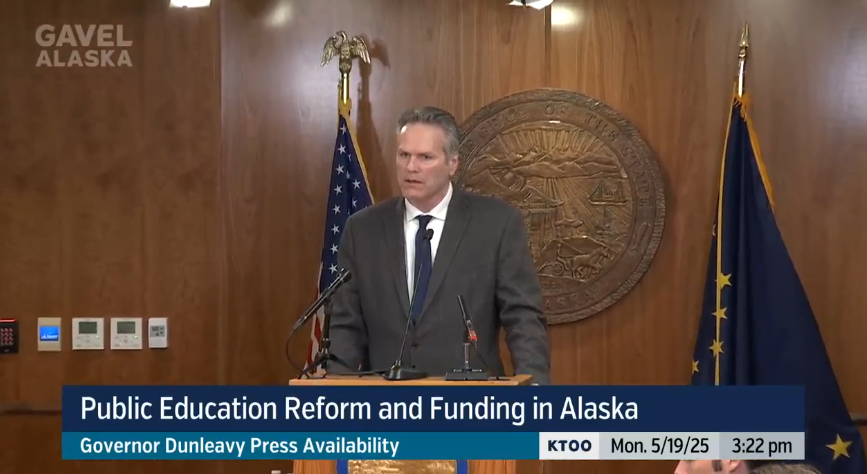
At his news conference, the governor reiterated his support for those programs, insisting "there are times where children and parents have to pick a school that really works for them." It should be noted that when charters, the governor's preferred choice of school choice, can self-select for families that can afford to provide meals, transportation and volunteer hours, it really means certain families get to have a choice about the school "that really works for them."
I've talked at length about why the governor's preferred priorities essentially expand an inequitable system that provides opportunities to those with the means while depriving opportunities to those without. Charters, in particular, claim to be better performing than neighborhood schools, but those outcomes, the research suggests, look to be more connected to the socioeconomic status of the kids than anything else. You can find my two-part series on it here and here.
Essentially, wealthy kids tend to do better academically than kids who aren't. And charters, to put it extremely bluntly, tend to do better because they tend to have fewer kids who aren't wealthy.
This whole issue gets a fine point put on it in an op-ed by Fairbanksan Sarah K. Lewis published in the Alaska Beacon, who unpacked the standards that charters use to filter out students who might not have as much familial support.
"This magnitude of commitment is not possible for many, many families," she wrote. "Advocating for more charters is not a way forward; instead, it is the foremost example of the short-sighted leadership that has led Alaska down this devastating path. Public education is not supposed to be a caste system."
She's also careful not to point blame at parents – of course, they're going to seek the best possible option for their kids, why shouldn't they? – but at policymakers for creating a system where selective schools are the best and most appealing option to get a better education.
"In our current landscape, charters are seemingly the only option parents have to make a better educational experience for their kids, so you can’t blame them for saying they want it," she wrote. "That’s the kind of short-sightedness you’re entitled to when you suddenly realize you don’t want your 5-year-old going into a kindergarten class of 28 kids. One can, however, blame the state for enabling only that one choice — especially since it’s not actually a choice for so many. We can demand they do better."
And frankly, in the big picture, that goes a long way to explaining why it's been impossible for legislators to truly get the governor to agree to anything. What he's asking for is to entrench a less-than-equitable system, while a majority of legislators would rather raise all boats. Those are positions that are inherently at odds, and I doubt there's much reason to give him much ground when he's proven unwilling to give any back.
Even if legislators override the bill’s veto, the governor has other ways to undermine public education funding. He could veto funding for the base student allocation from the operating budget, which would mark the first time in the state’s history that it funds education under the way it’s laid out in law.
Several legislators have suggested the state is already risking a lawsuit over its chronic underfunding of the public school system.
Stay tuned.
Follow the thread: Dunleavy's latest bloviating news conference on education
The Alaska Memo Newsletter
Join the newsletter to receive the latest updates in your inbox.


